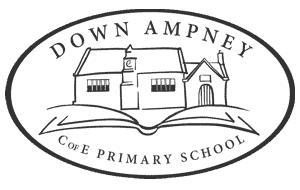
"Exemplary nurture for all pupils, notably those with additional needs, ensures that barriers to learning are overcome."
Siams, Jan 2020
Class 1
Class 1 is where Reception, Year 1 and Year 2 are based, working within their own curriculum areas and sharing learning and play spaces. Class 1 is taught by Miss Homan-Green (Class Teacher) alongside teaching assistants Mrs Wheeler, Mrs Paterson and Mrs Walters.
Our classroom is equipped with areas for continuous provision, to allow the EYFS children to explore freely and put their skills into practise. We have dedicated learning spaces for explicit teaching time for each year group, however, due to the nature of the class structure there is always other learning happening alongside.
We also have a beautiful outdoor classroom which includes a mud kitchen, deconstructed role play area, construction zone, a large sandpit, performance stage, climbing frame and many more areas to extend our learning. We use this every day for learning and for play!
When the EYFS children arrive in the morning they are greeted by a variety of independent tasks, which either build on prior learning or follow an interest the children have shown.
Phonics
Each day includes a phonics session, explicitly taught to each year group, following the Sounds-Write synthetic programme. Our sessions are engaging and enjoyable and include the skills of phoneme manipulation, blending to read and segmenting to spell. Our phonics teaching ensures children have opportunities to manipulate sounds within words and gives them the confidence and knowledge to read spell both known and unfamiliar words. All staff in Class One are fully trained in Sounds-Write and are therefore fully equipped to support your child with their phonics and early reading.
Reading
The children will bring home a decodable booked, matched to their phonic level, which a teacher will hear them read 3 times in school until they are fluent, when it will then be brought home. By building this confidence and fluency, the children are more willing to read aloud and are able to make rapid progress. Once a child is secure with Initial Code and has begun to read within the extended code with increased fluency, they will also bring home a library book which they will take a comprehension quiz on before choosing a new one.
Listening to stories is a core part of children’s learning and we share stories daily, taken from our reading spine which includes a range of culturally and socially diverse books.
Maths
In Maths, each year group is taught discrete objectives to ensure the progression of skills and understanding. We teach through a mastery approach; embedding understanding through deep and meaningful learning and making connections. Children develop fluency using manipulatives and pictorial representations and teaching ensures prior learning is built on through careful questioning and celebrating mistakes as opportunities to learn. We follow the ‘CanDoMaths’ scheme of work which is interwoven with the NCETM Ready to Progress objectives to ensure progression and the NCETM 6 key areas of mathematics in Reception. As an addition to daily maths lessons, we also teach weekly ‘Mastering Number’ sessions, which focus on fluency to secure firm foundations in the development of good number sense for all children from Reception through to Year 1 and Year 2.
English
Year 1 and 2 are an exciting part of a child’s writing development, as they move from being able to write simple sentences and captions at the end of Reception to being able to write for a range of purposes, including sequencing their sentences into short narratives. All of our writing units are based on rich and stimulating texts which we share and enjoy together, including both fiction, non-fiction and poetry outcomes. All children have the opportunity to write throughout provision and have access to writing resources at all times.
Foundation subjects
In KS1 we follow a 2 year rolling programme for our foundation subjects, in line with the rest of the school. EYFS topics have links to these areas and teaching stems from these subjects where possible.

